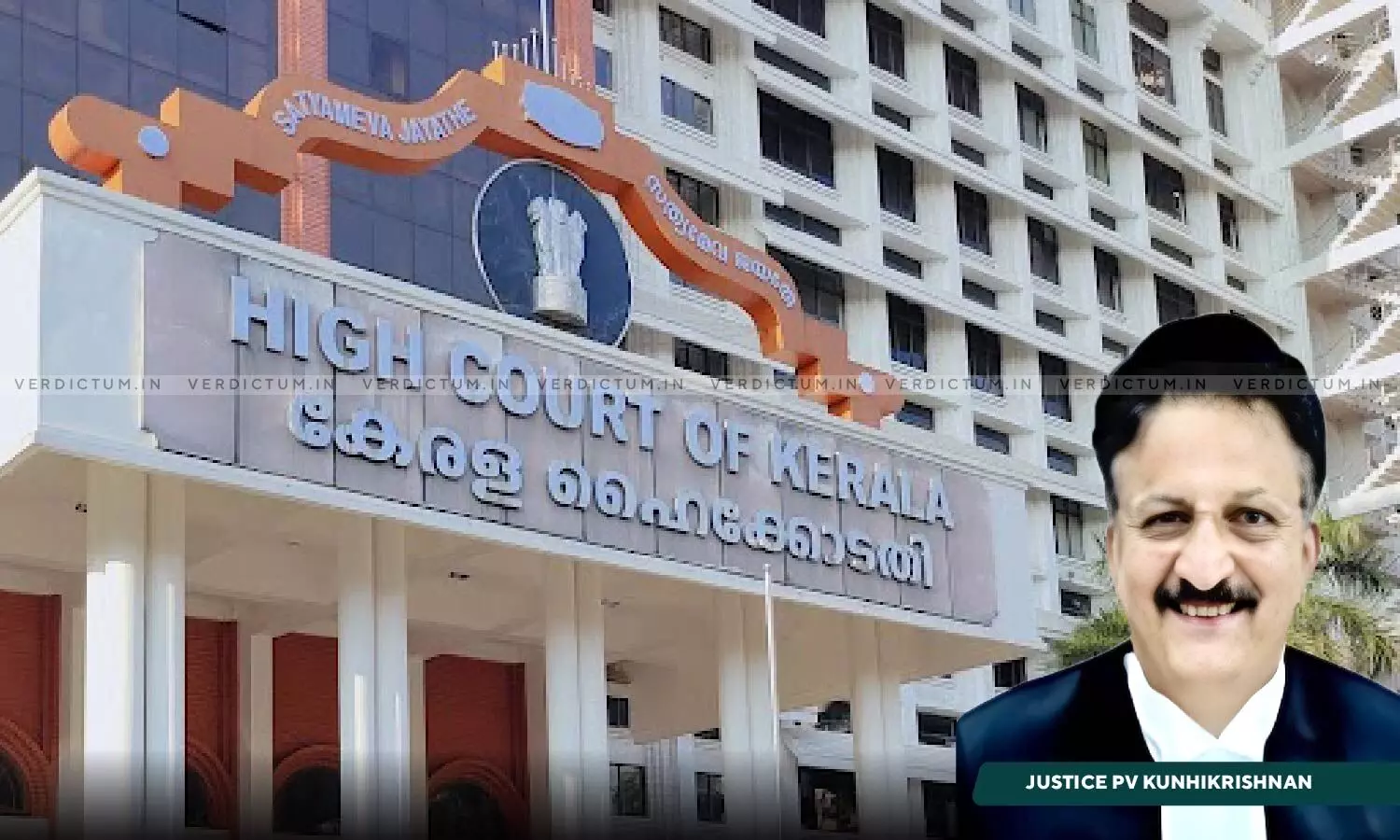
Affixing A Poster Containing Symbol Of Recognized Political Party On Electric Post Cannot Be Treated As Mischief, So As To Attract Penal Action: Kerala HC
 |
|The Kerala High Court recently emphasized on the importance of Section 95 of the IPC which says that ‘nothing is an offence by reason that it causes, or that it is intended to cause, or that it is known to be likely to cause, any harm, if that harm is so slight that no person of ordinary sense and temper would complain of such harm’, and highlighted that this provision must be in the mind by every police officer while investigating a case.
The High Court held that affixing a poster containing the symbol of a recognized political party on an electric post cannot be treated as an act done malignantly or wantonly, and hence cannot be treated as mischief in all situation.
Even if the entire allegations in the final report are accepted, the High Court clarified that no mischief has been committed by the petitioner in affixing a poster, so as to attract offence under Section 153 IPC, 3(1) of PDPP Act and Section 140 of the Electricity Act, 2003.
Stating that a Police Officer has a duty to decide whether a case is to be charge sheeted or not, in the facts and circumstances of each case, a Single Judge Bench of Justice P.V Kunhikrishnan observed that “Sec. 95 of the IPC says that nothing is an offence if the harm is so slight that no person of ordinary sense and temper would complain of such harm. For the alleged loss of Rs.63/- because of affixing a poster on an electric post, the investigating officer in this case filed the chargesheet”.
The Bench further found that “the prosecution case is that one single poster is affixed on a single electricity post. If that is the case, for the loss of Rs.63/-, the entire judicial machinery has to work for days. A judicial officer has to spend lot of time to dispose this case. In such situation, it is the duty of the police officers to find out whether such cases are to be charge sheeted or not. A simple warning to the persons who affix the posters is more than enough in such situation”.
Advocate K.N. Abhilash appeared for the Petitioner, whereas Public Prosecutor appeared for the Respondent.
The brief facts of the case were that the accused in connection with election to Local Self Government Institutions illegally affixed a poster on the electric post with gum and thereby committed mischief to the public property. It was alleged that the accused committed the offence, as such act would affect identification of the post of the consumers of electricity by the Electricity Board and would prevent the Board from resumption of power supply in time. Since to remove the poster from the electric post, the Board had to spend Rs.63/-, hence it was alleged that the accused committed the offence under Section 3(1) of the PDPP Act and Section 153 of IPC. Subsequently the offence under Section 140 of the Electricity Act, 2003 was also added and the matter was committed to the Sessions court, which was pending consideration.
After considering the submission, the Bench found that only overt act attributed to the accused is that he affixed a poster of a lotus, which is a symbol of a political party, on an electric post and made commotion.
“It is stated that gum is used for fixing the poster and therefore there is mischief. It also stated that a loss of Rs.63/- was incurred for removing the poster. I fail to understand how this amount is assessed by the authorities. Is it the labour charge for tearing the poster from the electric post and washing the post to remove the gum? If these types of cases are treated as mischief within the meaning of Section 425 IPC, there will not be any end to the mischief committed by the citizens. Citizens should rise to the occasion to avoid such misdemeanors”, added the Bench.
The Bench pointed that when these types of cases are registered stating that there is a loss of Rs.63/- to public property because a poster is affixed on an electric post, a court of law will be wasting its judicial time to try these types of cases.
The Bench therefore observed that the present is a strange situation in which a case is registered for affixing a poster on an electricity post which according to prosecution caused a damage to the tune of Rs.63/- to the Electricity Board.
“Since, Sec.140 of the Electricity Act is added, the matter must be considered by the special court, which is a Sessions Court, and which must take cognizance of the offence based on the final report and has to issue process to the accused, the process server or the authority concerned has to serve summons to the accused, the accused has to engage a lawyer, appear before the Sessions Court and get bail, the Sessions Court has to frame charge as per the provisions of the Criminal Procedure Code, the prosecution has to adduce evidence, the defence has to cross examine the witness, thereafter, the statement under Sec 313 CrPC is to be recorded, then the defence evidence if any has to be recorded, thereafter, the matter has to be heard”, added the Bench.
The High Court therefore, quashed the prosecution and directed that some refreshment class is necessary for the investigating officers of the police department in this regard.
Cause Title: Rohit Krishna v. State of Kerala [Neutral Citation: 2023/KER/58136]
Click here to read/ download the Judgment